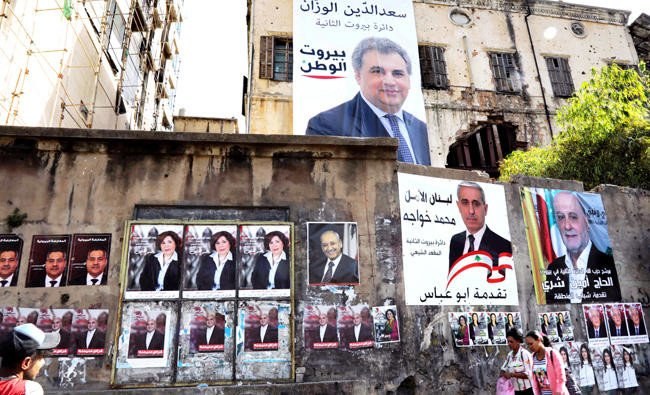BEIRUT: The Lebanese Interior Ministry is planning to hold parliamentary elections on March 27, 2022, which is nearly six weeks before the end of the current parliament’s mandate.
However, the final date for the elections has not been confirmed yet, which has added to the uncertainty many Lebanese people have felt toward their government — or lack of — for the past two years.
Holding elections in March would shorten the legal deadlines required while potentially postponing the elections to April would conflict with Ramadan.
“The political class is trying to flee from holding elections in the current circumstances,” election expert Walid Fakhr El-Din said.
“The evidence is that we have entered the legal deadlines, yet the required dates have not yet been set. There is no time to amend the law, which, in practice, means the elections will be postponed.”
A similar run-out-the-clock scenario also played out in 2016, he said, which extended the parliament’s tenure.
“There is whispering behind the scenes, among the political class, that the parliamentary elections may be postponed until after the presidential elections, which are scheduled for next October.”
Observers of the electoral preparations also believe the ruling political class has no intention of including expatriates in the vote.
The interior ministry started to install computers and prepped the headquarters of the Election Supervision Authority. But it has not yet requested an amendment to articles in the electoral law related to the expatriate voting article and the six seats allocated to them.
In the meantime, the Lebanese Ministry of Foreign Affairs has already started registering voters abroad and broadcasting a media promotion campaign directed at expatriates to determine if they preferred to vote in Lebanon or abroad.
Setting an official date for the parliamentary elections provides an opportunity for candidates to prepare, especially the independent candidates.
The parliamentary elections are expected to be heated as the Lebanese people are motivated for political upheaval in a system accused of corruption. They will take place in the presence of international organizations to ensure integrity and credibility.
These organizations have expressed all readiness to provide technical support to the interior ministry. There are fears that the parliamentary elections could also fall victim to the economic and financial collapse in Lebanon.
The computers and servers that were used in the last parliamentary elections, four years ago, were placed in a warehouse in Karantina, which was close to the site of the Beirut port explosion 14 months ago. The level of damage the equipment sustained remains unclear.
For the past two years, the authorities concerned — in clear violation of the constitution — have failed to hold elections following the deaths or resignations of 10 deputies.
The result, as Deputy Speaker of Parliament Elie Ferzli said, is “an attempt to yield a modern, civil law that takes into account the aspirations of the Lebanese people.”
















